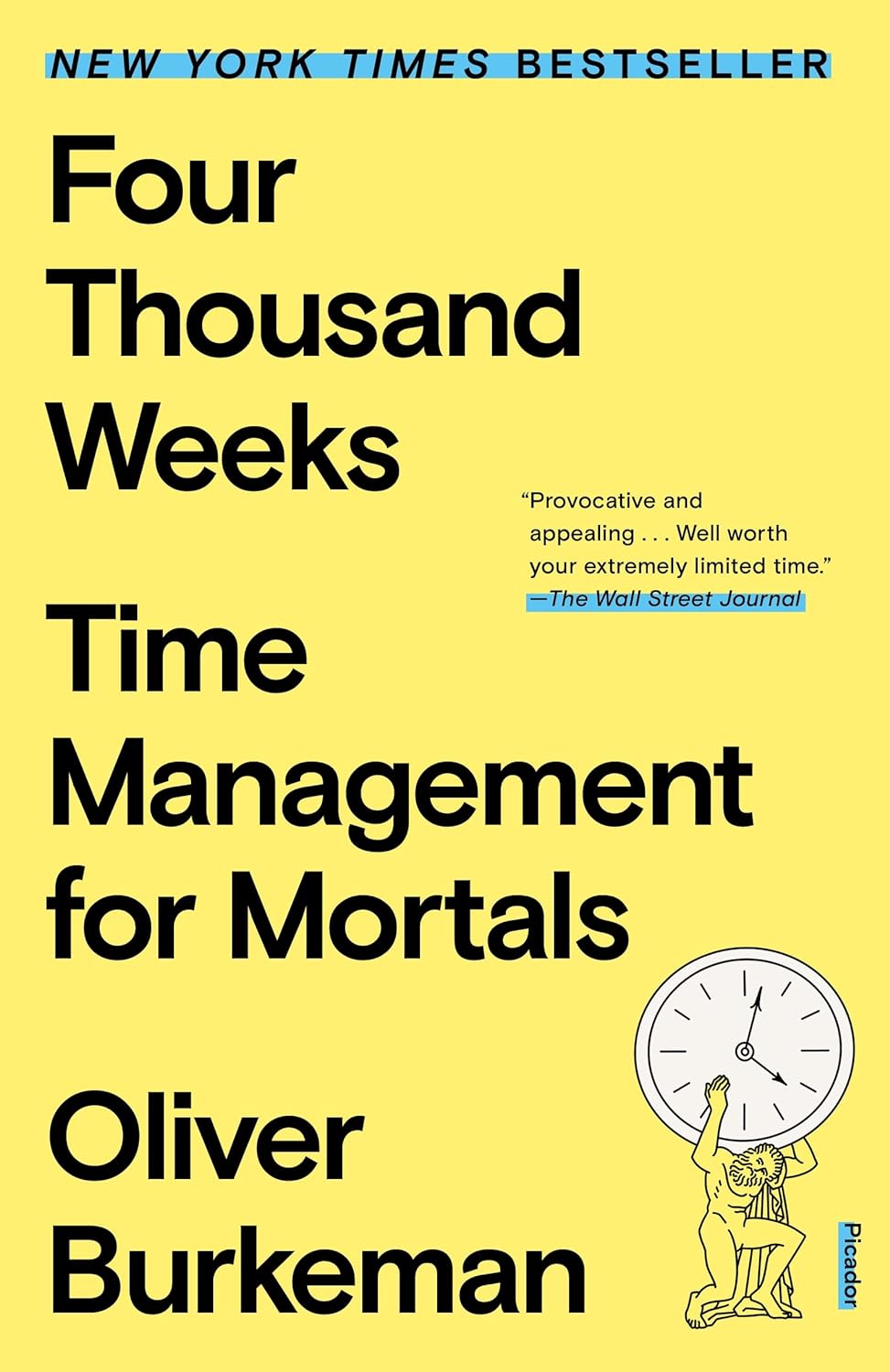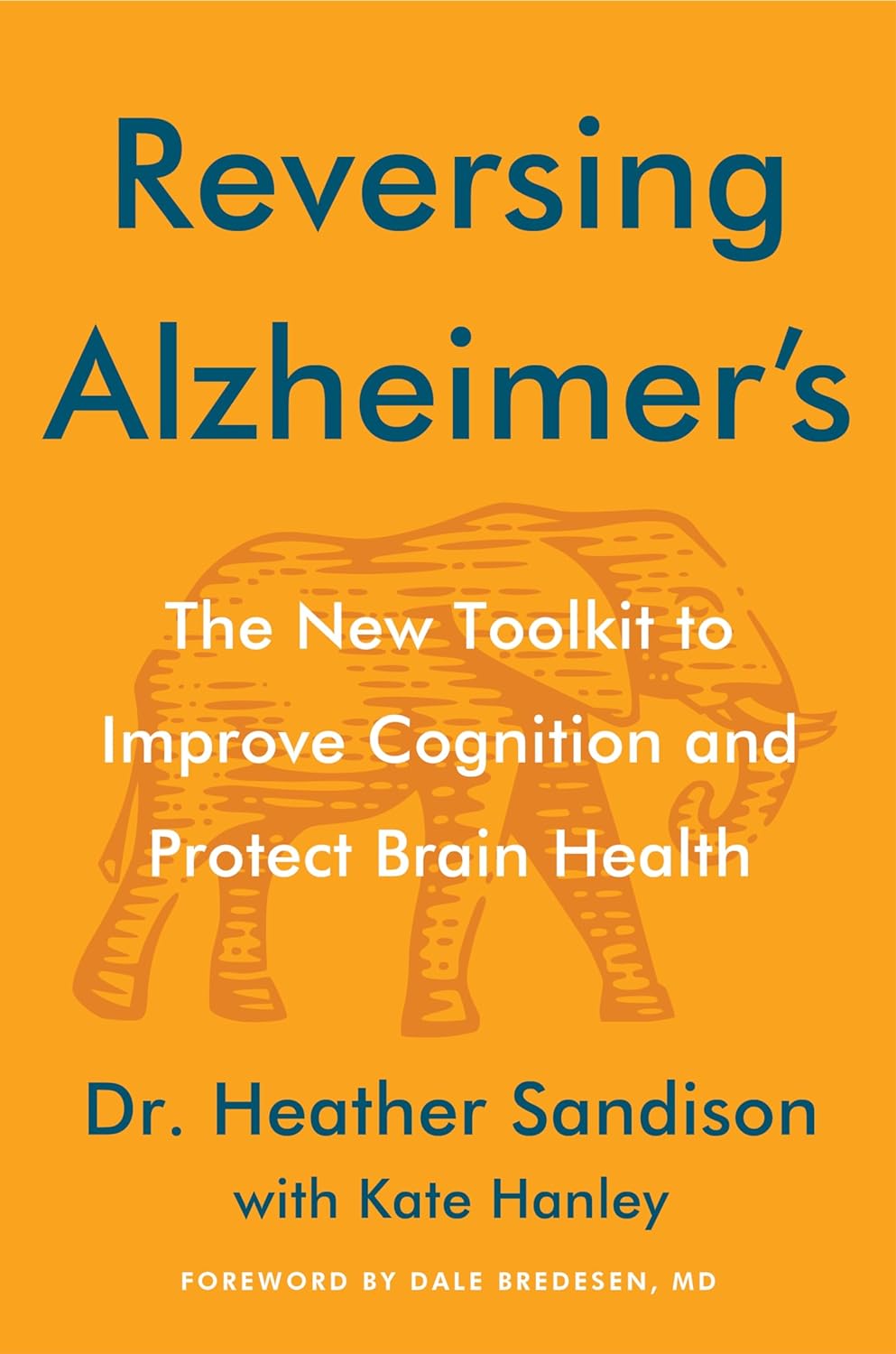
Doctors From 15 Specialties Tell The Worst Common Mistakes People Make
10almonds is reader-supported. We may, at no cost to you, receive a portion of sales if you purchase a product through a link in this article.
Whatever your professional background, you probably know many things about it that are very obvious to you, but that most people don’t know. So it is for doctors too; here are the things that doctors from 15 specialties would never do, and thus advise people against doing:
Better safe than sorry
We’ll leap straight into it:
- General Surgery: avoid rushing into musculoskeletal or spinal surgery unless absolutely necessary; conservative treatments like physical therapy are often effective.
- Interventional Gastroenterology: avoid long-term, around-the-clock use of anti-inflammatory pain medications (e.g. Ibuprofen and friends) to prevent stomach ulcers.
- Podiatry: never place feet on the car dashboard due to the risk of severe injuries from airbag deployment.
- Rheumatology: avoid daily use of high heels to prevent joint and foot deformities, bunions, and pain.
- Otorhinolaryngology: never smoke, as it can lead to severe consequences like laryngectomy and other life-altering conditions.
- Pediatrics: avoid dangerous activities for children, such as swimming alone, eating choking hazards, biking or skiing without a helmet, or consuming raw meat/fish/dairy. Also, be cautious with firearms in homes.
- Orthopedic Surgery: avoid riding motorcycles and handling fireworks due to high risks of accidents.
- Emergency Medicine: never drink and drive or ride ATVs. Always use eye protection during activities like woodworking.
- Ophthalmology: always wear safety glasses during activities like grinding metal or woodworking. Sunglasses are essential to prevent UV damage even on cloudy days.
- Urology: avoid shaving pubic hair if diabetic or immunocompromised to prevent severe infections like Fournier’s gangrene.
- Gastroenterology: do not use gut health supplements as they lack proven efficacy and are often a waste of money*
- Plastic Surgery: avoid contour threads (barbed sutures for facial rejuvenation) and butt implants due to risks like infection, complications, and poor outcomes.
- Psychiatry: never take recreational drugs from unknown sources to avoid accidental overdoses, especially from substances laced with fentanyl. Carry Narcan for emergencies.
- Dermatology: use sunscreen daily to prevent skin cancer, aging, pigmentation issues, and texture problems caused by UV exposure.
- Cardiology: avoid the carnivore diet as it increases heart disease risks due to its negligible fiber content and high saturated fat intake.
*We had an article about this a while back; part of the problem is that taking probiotics without prebiotics can mean your new bacteria just die in about 20 minutes, which is their approximate lifespan in which to multiply or else die out. Similar problems arise if taking them with sugar that feeds their competitors instead. See: Stop Sabotaging Your Gut!
For more on each of these, in the words of the respective doctors, enjoy:
Click Here If The Embedded Video Doesn’t Load Automatically!
Want to learn more?
You might also like to read:
Take care!
Don’t Forget…
Did you arrive here from our newsletter? Don’t forget to return to the email to continue learning!
Recommended
Learn to Age Gracefully
Join the 98k+ American women taking control of their health & aging with our 100% free (and fun!) daily emails:
-
How To Make Your Doctor’s Appointment Do More For You
10almonds is reader-supported. We may, at no cost to you, receive a portion of sales if you purchase a product through a link in this article.
Doctor: “So, how are you today?”
Patient: “Can’t complain; how about you?”Hopefully your medical appointments don’t start quite like that, but there can be an element of being “along for the ride” when it comes to consultations. They ask questions, we answer, they prescribe something, we thank them.
In principle, the doctor should be able to handle that; ask the right questions, determine the problem, and not need too much from you. After all, they have been trained to deal with an unconscious patient, so the fact you can communicate at all is a bonus.
However, leaving it all to them isn’t really playing the field.
Before the appointment
Research your issue, as best you understand it. Some doctors will be very averse to you telling them about having done this (taking it as an affront to their expertise), but here’s the thing:
You don’t have to tell them.
You just have to understand as much as possible, so that you will be as “up to speed” as possible in the conversation, and not be quickly out of your depth.
Have an agenda, based on the above. Literally, have a little set of bullet-points to remind you what you came in to discuss, so that nothing escapes you in the moment. This should also include:
- If you have additional reasons for a particular concern (e.g. family history of a certain problem), make them known
- If you plan to request any specific tests or treatments, be able to clearly state your reasons for the specific tests or treatments
- If you plan to write off any specific tests or treatments as something to which you will not consent, have your reasons ready—in a way that makes it clear it’s something more than “don’t want it”, for example, “I’ve already decided that this treatment would make a sufficient hit to my quality of life, as to make it not worthwhile for me personally” (or whatever the reason may be for you). It needs to be something they can write on their notes instead of simply “patient refused treatment”.
Compile a record of your symptoms (as appropriate), and any previous tests/treatments (as appropriate), in chronological order. If you take all this with you, perhaps in a nice folder, you will enjoy the following advantages:
- not forgetting anything
- ability to answer questions accurately
- give the (correct) impression you take your health seriously, which means they are more likely to do so also—especially because they will now know that if they fob you off and/or mess something up, you’ll be taking a record of that to your next appointment.
Plan your outfit. No, you don’t have to dress for the red carpet, but you want to satisfy two main conditions:
- Accessibility for examination (for example, if you are going in with a knee pain, maybe don’t wear the tight jeans today; if they’re going to take blood, be either sleeveless or have sleeves that are easily moved out of the way, etc)
- General presentability (it’s a sad fact that doctors are not immune to biases, and will treat people better if they respect them more)
During the appointment
Be friendly; doctors (like most people) will respond much better to that than to grumpiness—even if you have good reason for grumpiness and even if the doctor has been trained to help grumpy patients.
Be confident: when we say “be friendly”, that doesn’t mean to necessarily be so agreeable as to not advocate for yourself. In particular:
- If they explain something and it isn’t clear to you, ask them to clarify
- If you disagree with them about a value judgement, say so. By “a value judgement” here we mean things in the realm of subjectivity. If the doctor says you are prediabetic, then you won’t get much mileage out of arguing otherwise; the numbers have the final say on that one. But if the doctor says “the side effects of the treatment you’re requesting will make it not worthwhile for you” and you have understood the side effects and you still disagree, then your opinion counts for more than theirs—it is your decision to make.
- If they dismiss a concern, ask them to put in writing that they dismissed your concern of X, despite you providing evidence that Y, and it being well-known that Z. Often, rather than doing that, they’ll just fold and actually address your concern instead.
Writer’s example in that last category: I recently made a request for a bone density scan. I expect my bone density is great, because I do all the right things, however, as both of my parents suffered from osteoporosis and assorted resultant crushed bones and the terrible consequences thereof, I a) have reasonable grounds for extra concern, and b) I believe that even if my bone density is fine now, it’s good to establish a baseline so I can know, in 5, 10, 20 years etc, whether there has been any deterioration. Now, happily the doctor I saw agreed with my assessment at first presentation and so I got the referral, but had she not been, I would have said “Could you please put in writing that I asked for a bone density scan, and you refused, on the grounds that [details about what happened with my parents], and that osteoporosis is known to have a strong genetic component is not, in your opinion, any reason to worry?”
Be honest, and/but err on the side of overstating your symptoms rather than understating. For example, if it is about a chronic condition and the doctor asks “are you able to do xyz”, take the question as meaning “are you able to do xyz on your worst days?”. You can clarify that if you like in your answer, but you need to include the information that xyz is something that your condition can and sometimes does impede you from doing.
Leave your embarrassment at the door. To the doctor (unless they are a very unprofessional one), you really are just one more patient with symptoms they have (unless your condition is very rare) seen a thousand times before. If your symptom is embarrassing, it will not faze them and you definitely should not hold back from mentioning it, for example. This goes extra in the case of discussions around sexual health, by the way, in which field the details you’d perhaps rather not share with anybody, are the details they need to adequately treat you.
After the appointment
Follow up on anything that doesn’t happen as promised (e.g. referrals, things ordered, etc), to make sure nothing got lost in a bureacratic error.
Get a second opinion if you’re not satisfied with the first one. Doctors are fallible, and as a matter of professional pride, it’s likely the second doctor will be glad to find something the first doctor missed.
See also: Make Your Negativity Work For You
Take care!
Share This Post
-
What causes the itch in mozzie bites? And why do some people get such a bad reaction?
10almonds is reader-supported. We may, at no cost to you, receive a portion of sales if you purchase a product through a link in this article.
Are you one of these people who loathes spending time outdoors at dusk as the weather warms and mosquitoes start biting?
Female mosquitoes need blood to develop their eggs. Even though they take a tiny amount of our blood, they can leave us with itchy red lumps that can last days. And sometimes something worse.
So why does our body react and itch after being bitten by a mosquito? And why are some people more affected than others?
Arthur Poulin/Unsplash What happens when a mosquito bites?
Mosquitoes are attracted to warm blooded animals, including us. They’re attracted to the carbon dioxide we exhale, our body temperatures and, most importantly, the smell of our skin.
The chemical cocktail of odours from bacteria and sweat on our skin sends out a signal to hungry mosquitoes.
Some people’s skin smells more appealing to mosquitoes, and they’re more likely to be bitten than others.
Once the mosquito has made its way to your skin, things get a little gross.
The mosquito pierces your skin with their “proboscis”, their feeding mouth part. But the proboscis isn’t a single, straight, needle-like tube. There are multiple tubes, some designed for sucking and some for spitting.
Once their mouth parts have been inserted into your skin, the mosquito will inject some saliva. This contains a mix of chemicals that gets the blood flowing better.
There has even been a suggestion that future medicines could be inspired by the anti-blood clotting properties of mosquito saliva.
A common pest mosquito around the world, Culex quinquefasciatus. Cameron Webb (NSW Health Pathology), CC BY It’s not the stabbing of our skin by the mosquito’s mouth parts that hurts, it’s the mozzie spit our bodies don’t like.
Are some people allergic to mosquito spit?
Once a mosquito has injected their saliva into our skin, a variety of reactions can follow. For the lucky few, nothing much happens at all.
For most people, and irrespective of the type of mosquito biting, there is some kind of reaction. Typically there is redness and swelling of the skin that appears within a few hours, but often more quickly, after just a few minutes.
Occasionally, the reaction can cause pain or discomfort. Then comes the itchiness.
Some people do suffer severe reactions to mosquito bites. It’s a condition often referred to as “skeeter syndrome” and is an allergic reaction caused by the protein in the mosquito’s saliva. This can cause large areas of swelling, blistering and fever.
The chemistry of mosquito spit hasn’t really been well studied. But it has been shown that, for those who do suffer allergic reactions to their bites, the reactions may differ depending on the type of mosquito biting.
We all probably get more tolerant of mosquito bites as we get older. Young children are certainly more likely to suffer more following mosquito bites. But as we get older, the reactions are less severe and may pass quickly without too much notice.
How best to treat the bites?
Research into treating bites has yet to provide a single easy solution.
There are many myths and home remedies about what works. But there is little scientific evidence supporting their use.
The best way to treat mosquito bites is by applying a cold pack to reduce swelling and to keep the skin clean to avoid any secondary infections. Antiseptic creams and lotions may also help.
There is some evidence that heat may alleviate some of the discomfort.
It’s particularly tough to keep young children from scratching at the bite and breaking the skin. This can form a nasty scab that may end up being worse than the bite itself.
Applying an anti-itch cream may help. If the reactions are severe, antihistamine medications may be required.
To save the scratching, stop the bites
Of course, it’s better not to be bitten by mosquitoes in the first place. Topical insect repellents are a safe, effective and affordable way to reduce mosquito bites.
Covering up with loose fitted long sleeved shirts, long pants and covered shoes also provides a physical barrier.
Mosquito coils and other devices can also assist, but should not be entirely relied on to stop bites.
There’s another important reason to avoid mosquito bites: millions of people around the world suffer from mosquito-borne diseases. More than half a million people die from malaria each year.
In Australia, Ross River virus infects more than 5,000 people every year. And in recent years, there have been cases of serious illnesses caused by Japanese encephalitis and Murray Valley encephalitis viruses.
Cameron Webb, Clinical Associate Professor and Principal Hospital Scientist, University of Sydney
This article is republished from The Conversation under a Creative Commons license. Read the original article.
Share This Post
-
Demystifying Cholesterol
10almonds is reader-supported. We may, at no cost to you, receive a portion of sales if you purchase a product through a link in this article.
All About Cholesterol
When it comes to cholesterol, the most common lay understanding (especially under a certain age) is “it’s bad”.
A more informed view (and more common after a certain age) is “LDL cholesterol is bad; HDL cholesterol is good”.
A more nuanced view is “LDL cholesterol is established as significantly associated with (and almost certainly a causal factor of) atherosclerotic cardiovascular disease and related mortality in men; in women it is less strongly associated and may or may not be a causal factor”
You can read more about that here:
Statins: His & Hers? ← we highly recommend reading this, especially if you are a woman and/or considering/taking statins. To be clear, we’re not saying “don’t take statins!”, because they might be the right medical choice for you and we’re not your doctors. But we are saying: here’s something to at least know about and consider.
Beyond HDL & LDL
There is also VLDL cholesterol, which as you might have guessed, stands for “very low-density lipoprotein”. It has a high, unhealthy triglyceride content, and it increases atherosclerotic plaque. In other words, it hardens your arteries more quickly.
The term “hardening the arteries” is an insufficient descriptor of what’s happening though, because while yes it is hardening the arteries, it’s also narrowing them. Because minerals and detritus passing through in the blood (the latter sounds bad, but there is supposed to be detritus passing through in the blood; it’s got to get out of the body somehow, and it’s off to get filtered and excreted) get stuck in the cholesterol (which itself is a waxy substance, by the way) and before you know it, those minerals and other things have become a solid part of the interior of your artery wall, like a little plastering team came and slapped plaster on the inside of the walls, then when it hardened, slapped more plaster on, and so on. Macrophages (normally the body’s best interior clean-up team) can’t eat things much bigger than themselves, so that means they can’t tackle the build-up of plaque.
Impact on the heart
Narrower less flexible arteries means very poor circulation, which means that organs can start having problems, which obviously includes your heart itself as it is not only having to do a harder job to keep the blood circulating through the narrower blood vessels, but also, it is not immune to also being starved of oxygen and nutrients along with the rest of the body when the circulation isn’t good enough. It’s a catch 22.
What if LDL is low and someone is getting heart disease anyway?
That’s often a case of apolipoprotein B, and unlike lipoprotein A, which is bound to LDL so usually* isn’t a problem if LDL is in “safe” ranges, Apo-B can more often cause problems even when LDL is low. Neither of these are tested for in most standard cholesterol tests by the way, so you might have to ask for them.
*Some people, around 1 in 20 people, have hereditary extra risk factors for this.
What to do about it?
Well, get those lipids tests! Including asking for the LpA and Apo-B tests, especially if you have a history of heart disease in your family, or otherwise know you have a genetic risk factor.
With or without extra genetic risks, it’s good to get lipids tests done annually from 40 onwards (earlier, if you have extra risk factors).
See also: Understanding your cholesterol numbers
Wondering whether you have an increased genetic risk or not?
Genetic Testing: Health Benefits & Methods ← we think this is worth doing; it’s a “one-off test tells many useful things”. Usually done from a saliva sample, but some companies arrange a blood draw instead. Cost is usually quite affordable; do shop around, though.
Additionally, talk to your pharmacist to check whether any of your meds have contraindications or interactions you should be aware of in this regard. Pharmacists usually know contraindications/interactions stuff better than doctors, and/but unlike doctors, they don’t have social pressure on them to know everything, which means that if they’re not sure, instead of just guessing and reassuring you in a confident voice, they’ll actually check.
Lastly, shocking nobody, all the usual lifestyle medicine advice applies here, especially get plenty of moderate exercise and eat a good diet, preferably mostly if not entirely plant-based, and go easy on the saturated fat.
Note: while a vegan diet contains zero dietary cholesterol (because plants don’t make it), vegans can still get unhealthy blood lipid levels, because we are animals and—like most animals—our body is perfectly capable of making its own cholesterol (indeed, we do need some cholesterol to function), and it can make its own in the wrong balance, if for example we go too heavy on certain kinds of (yes, even some plant-based) saturated fat.
Read more: Can Saturated Fats Be Healthy? ← see for example how palm oil and coconut oil are both plant-based, and both high in saturated fat, but palm oil’s is heart-unhealthy on balance, while coconut oil’s is heart-healthy on balance (in moderation).
Want to know more about your personal risk?
Try the American College of Cardiology’s ASCVD risk estimator (it’s free)
Take care!
Share This Post
Related Posts
-
10 Simple Japanese Habits For Healthier & Longer Life
10almonds is reader-supported. We may, at no cost to you, receive a portion of sales if you purchase a product through a link in this article.
You don’t have to be Japanese or live in Okinawa to enjoy the benefits of healthy longevity. A lot of it comes down to simple habits:
Easy to implement
We’ll not keep the 10 habits a mystery; they are:
- Start the day with hot water: drinking hot water in the morning helps with hydration, warming the body, and aiding digestion.
- Enjoy a hearty breakfast: Japanese breakfasts are traditionally filling, nutritious, and help promote energy and longevity. Typical components include rice, miso soup, fish, and pickles.
- Take balanced meals: Japanese education emphasizes nutrition from a young age, promoting balanced meals with proteins, fiber, and vitamins & minerals.
- Enjoy fermented foods: fermented foods, such as nattō and soy-based condiments, support digestion, heart health, and the immune system.
- Drink green tea and matcha: both are rich in health benefits; preparing matcha mindfully adds a peaceful ritual to daily life too.
- Keep the “80% full” rule: “hara hachi bu” encourages eating until 80% full, which can improve longevity and, of course, prevent overeating.
- Use multiple small dishes: small servings and a variety of dishes help prevent overeating and ensure a diverse intake of nutrients.
- Gratitude before and after meals: saying “itadakimasu” and “gochisousama” promotes mindful eating, and afterwards, good digestion. Speaking Japanese is of course not the key factor here, but rather, do give yourself a moment of reflection before and after meals.
- Use vinegar in cooking: vinegar, often used in sushi rice and sauces like ponzu, adds flavor and offers health benefits, mostly pertaining to blood sugar balance.
- Eat slowly: Eating at a slower pace will improve digestion, and can enhance satiety and prevent accidentally overeating.
For more on all of these, enjoy:
Click Here If The Embedded Video Doesn’t Load Automatically!
Want to learn more?
You might also like to read:
How To Get More Out Of What’s On Your Plate
Take care!
Don’t Forget…
Did you arrive here from our newsletter? Don’t forget to return to the email to continue learning!
Learn to Age Gracefully
Join the 98k+ American women taking control of their health & aging with our 100% free (and fun!) daily emails:
-
Four Thousand Weeks – by Oliver Burkeman
10almonds is reader-supported. We may, at no cost to you, receive a portion of sales if you purchase a product through a link in this article.
This is not, strictly speaking, a time management book. It’s more a “contemplating mortality and making things count while still doing the necessaries”.
Burkeman’s premise is that we get around 4,000 weeks of life, on average. If we live to 120, it’s more like 6,200. Unlucky souls may have to do the best they can with 1,000 or so.
The book is thought-provoking; consider:
- how was your last week?
- how will your next week be?
- what if it were your last?
Of course, we cannot necessarily liquidate all our assets and spend next week burning out in style, because then the following week comes. So, what’s the solution?
That’s something Burkeman lays out over the course of the book, with key ideas including passion projects and figuring out what can be safely neglected, but there’s far more there than we could sum up here.
Bottom line: if you ever find yourself struggling to balance what is expected of you with what is of value to you, this book can help you get the most out of your choices.
Click here to check out Four Thousand Weeks, and make yours count!
Don’t Forget…
Did you arrive here from our newsletter? Don’t forget to return to the email to continue learning!
Learn to Age Gracefully
Join the 98k+ American women taking control of their health & aging with our 100% free (and fun!) daily emails:
-
Reversing Alzheimer’s – by Dr. Heather Sandison
10almonds is reader-supported. We may, at no cost to you, receive a portion of sales if you purchase a product through a link in this article.
The title here is bold, isn’t it? But, if the studies so far are anything to go by, she is, indeed, reversing Alzheimer’s. By this we mean: her Alzheimer’s patients have enjoyed a measurable reversal of the symptoms of cognitive decline (this is not something that usually happens).
The science here is actually new, and/but references are given aplenty, including Dr. Sandison’s own research and others—there’s a bibliography of several hundred papers, which we love to see.
Dr. Sandison’s approach is of course multivector, but is far more lifestyle medicine than pills, with diet in particular playing a critical role. Indeed, it’s worth mentioning that she is a naturopathic doctor (not an MD), so that is her focus—though she’s had a lot of MDs looking in on her work too, as you may see in the book. She has found best results in a diet low in carbs, high in healthy fats—and it bears emphasizing, healthy ones. Many other factors are also built in, but this is a book review, not a book summary.
Nor does the book look at diet in isolation; other aspects of lifestyle are also taken into account, as well as various medical pathways, and how to draw up a personalized plan to deal with those.
The book is written with the general assumption that the reader is someone with increased Alzheimer’s risk wishing to reduce that risk, or the relative of someone with Alzheimer’s disease already. However, the information within is beneficial to all.
The style is on the hard end of pop-science; it’s written for the lay reader, but will (appropriately enough) require active engagement to read effectively.
Bottom line: if Alzheimer’s is something that affects or is likely to affect you (directly, or per a loved one), then this is a very good book to have read
Click here top check out Reversing Alzheimer’s, and learn how to do it!
Don’t Forget…
Did you arrive here from our newsletter? Don’t forget to return to the email to continue learning!
Learn to Age Gracefully
Join the 98k+ American women taking control of their health & aging with our 100% free (and fun!) daily emails:









